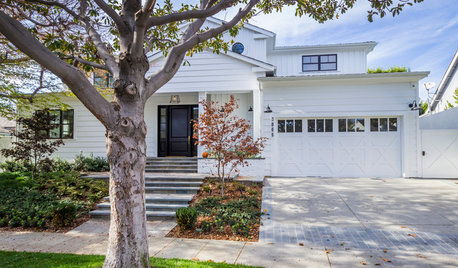the conversation was mostly dead, but i wanted to sound my two bits so started a new thread. most of this will make sense though i was writing to the original poster. i think it will make for some lively conversation and we may all learn a few things from each other in the process. sorry it is so long.
my credentials, i am a financial planner and hold various licensesnone of which matter as a license or title does not make you right or worth listening to in itself.
the original post was about paying cash for a house. most seamed to advise doing so or paying it down quickly or using short and or fixed mortgages.
first i hope you did not sink you money into the stock market. i have been in cash for almost a year now and i am no market genius (those who are still in have been shorting the market and making millions all year). it is shocking how many "planners" and brokers urged their clients to "invest for the long term" and hold in the market. if your planner or broker has been saying this this last year, you should fire them. the stock market is not a long term investment. in needs to be watched daily and adjusted daily. money is never lost in the market. it only changes hands. if you lose somebody else won. the winners are those who know what is going on and adjusting their strategy daily. if this is not something you can do, hire somebody who can, get out, or suffer the cost of ignorance as those who know (major investors and fund managers) take your money.
Second, i hope you did not bury your cash in a coffee can in the back yardÂin other words, pay cash and hold no mortgage. paying cash is a very expensive way to own a house. the reason being you are burying you money. you will realize appreciation but that is pointless from the standpoint of cash flow and you have to sell to get it. this money could have easily generated more than the cost of holding the mortgage. there are also tax savings on the mortgage debt if you pay it off. this is know as a lost opportunity cost. it is as real of a figure to be calculated just as an fees or interest paid.
example: if i pay no interest i loose nothing. right? wrong. i loose out on what i could have done. if i could have made 8% and it cost me 6% for the mortgage i made 2% plus tax savings. FYI i am a lazy investor with most my money managed by others and i make (yeild not average) 24% with no loss of principle risks. with effort you can do better. for me to have this money in my house would be a compounding loss of 18% plus the loss of my mortgage right off. cost of money is important, but is just part of the equation, not the answer to it. the spread or the margin in the number that matters, not the cost.
paying off a mortgage can cost you your retirement. the most important part of any financial plan is time. if you spend the first half of you career paying down a mortgage rather than investing, you are shorting yourself.
paying down your mortgage faster is almost as bad. mortgage interest is front loaded. you only get the promised rate if you go the term. pay it of faster and the percent paid is higher.
what i would recommend people do in such a situation is pay it cash and forgo all the fees associated with financed closings. then immediately after, open a HELOC for the maximum amount possible and start looking for ways to reinvest and grow that capital all the while controlling the real estate. there is no cost to have the HELOC and usually no fee to open it. you can go in and out as much as you want and use it like a private bank. leave non working mey in the realestate, but have access to it to use for opportunities. you only pay interest on what is out and are only required an interest only payment. my house equity actually pays for the house debt and then some because it is working.
right now would be a great time to have access to those funds. real estate and stock investment are all on fire sale. if you don't understand the market find someone who does. if you don't understand real estate, read some books and attend some seminars. if you are lazy, look into hard money lending or payday lending for 18-36% interest. buy some rental properties and cash flow them (rents are on the rise) and reap even more tax advantages. there are so many great places to earn money on your money rather than "burying" it. I would recommend the same with permanent life insurance and even investing some funds in it. just do something, actually do lots of different things.
risky? i think keeping the money out of the banks control is the best way to minimize risk. give it up to the financial institutions and they will happily follow the the model i am recommending only they won't be sharing the profit with you.
to most, this sounds like terrible advice. well most people in this country are not wealthy and have no idea how to become such. learn to act like a rich person, not by spending like one per se, but by understanding that money is not math, it is a commodity and needs to be treated as such. you cannot park it nor can you settle for small returns. personal financial models are worthless. you need to learn business finance principles and apply them to you personal finances. this is then main difference between the wealthy and the non. it is not the amount of money the have (net worth) it is about how much they have to spend (cashflow). many rich people are terribly poor on the books but have plenty to spend. why is that? they understand money and the laws that govern it.
your first dollar should be spent on education. build a network of advisers and mentors and for goodness sake don't listen to the talking heads and radio "gurus". if they are so good at making money, why are they working for a radio station and who is paying the bills (banks and investment houses who want your money buying ads).
all that said. this opinion is based on the person applying these principles being trustworthy with money. if you can't discipline yourself, pay off the house and invest in a 401k. if you are disciplined, stay away from both.
books i would recommend, eye openers all of them:
rich dad poor dad (kiosaki)
who took my money (kiosaki)
LEAP (castiglione)
killing sacred cows (gunderson)
sorry for the rant and the poor spelling. some of the philosophies presented, even by those with letters after their name were disturbing to me. such advice has cost millions of people billions of dollars this year.
any wanting a larger book list or wanting to discuss any of this "crazy" advice further, feel free to contact me off forum or invite me into another discussion. i love this topic and love to offer my opinions. the fee i charge for personal planning advice is zero. one of my personal beliefs is that you don't pay for financial advice. i do what i do because somebody once taught me and i am paying it forward. so you can dismiss any hidden agendas. my opinions are what i personally believe and practice but by no means the only way to the goal.
great discussion all-even those i disagree with. thanks for the thread and the interest in helping each other.
kendal.liddle@gmail.com













joyfulguy
mnk716
Related Discussions
Here's a question for those who pay with cash
Q
Pay with cash or finance a pool?
Q
Pay cash or not - what would you do in our place?
Q
Car loan for recent college grad vs paying cash?
Q
kliddleOriginal Author
western_pa_luann
kliddleOriginal Author
western_pa_luann
dontknow
mnk716
kliddleOriginal Author
mnk716
kliddleOriginal Author
mnk716
behaviorkelton
mnk716
behaviorkelton
mnk716
behaviorkelton
jeff8407
western_pa_luann
behaviorkelton
rocio
kliddleOriginal Author
rogerv_gw
rocio
chisue
kliddleOriginal Author
dreamgarden
calliope
joyfulguy
kliddleOriginal Author
mnk716